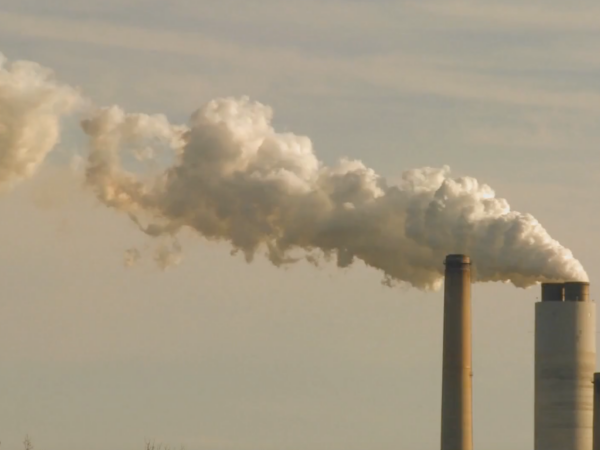From lead pipes to PFAS, drinking water contamination is a major issue plaguing cities and towns all around the Great Lakes. Cleaning up contaminants and providing safe water to everyone is an ongoing public health struggle.
Keep up with drinking water-related developments in the Great Lakes area.
Click on the headline to read the full story:
Illinois:
- Extra Testing Planned After High Levels of Lead Found in Water at Some Highland Homes – Belleville News-Democrat
The city of Highland will be conducting extra testing in the coming months after high levels of lead were found in the drinking water for some homes. Most homes were below 1 part lead per billion parts water, but some were as high as 15 ppb.
Mayor Joe Michaelis informed the city council a few weeks ago that recent testing showed some of Highland’s water is exceeding some action levels, requiring the city to notify residents. He called it “an opportunity for us to correct those deficiencies.”
Indiana:
The Environmental Protection Agency has released its long-awaited revision to the regulations that protect children from lead in their water. The revision includes a host of long-overdue improvements, including mandating testing in school water supplies and adjusting the testing process itself.
What isn’t included in the revision is the situation that caused tens of thousands of Flint, Michigan, children to be poisoned by lead in their drinking water: the lead service lines in the water supply systems of Indiana cities. Many Indiana schools have already been flagged for dangerously high levels of lead, so it follows that old water systems in other facilities might pose risks too.
Minnesota:
- How Cities Make Mississippi River Water Safe to Drink – Star Tribune
The Mississippi River is the source of drinking water for most people living in the urban core of Minneapolis and St. Paul. Compared to groundwater, river water is challenging to purify because it contains a wide variety of runoff — such as whatever collects in streams and storm sewer systems.
The Star Tribune delved into the mechanics of purifying wastewater in an installment of Curious Minnesota, our community reporting project fueled by reader questions.
New York:
- Dow Chemical Backs Effort to Use New York City’s Drinking Water on Long Island – Wall Street Journal
Long Island earned a distinction in 2016 it didn’t want: Some of the region’s drinking water was found to have among the highest levels nationwide of 1,4-dioxane, a chemical the U.S. Environmental Protection Agency calls a “likely human carcinogen.” As a result, New York’s Department of Health began its own “Operation Warp Speed” to deal with high 1,4-dioxane levels, and approved a treatment system that effectively removes the chemical from the water system.
However, Long Island, unlike New York City, gets its drinking water from a system of hundreds of underground wells. A Long Island advocacy group is suing to have the area use New York City’s “pristine water supply,” claiming the new treatment system, which costs hundreds of millions of dollars to install and run, is too expensive to install for Long Island’s water.
The Fort Edward Union Free School District had elevated lead levels in 7% of the drinking water sources tested in November.
The district sent samples of 128 sources of water back in November to the Capital Region Environmental Laboratory and received the results back on Dec. 3. Of the sources tested, nine were found to be in excess of the Environmental Protection Agency and New York State Department of Health limit of 15 parts per billion, according to a letter from Superintendent of Schools Dan Ward.
Ontario:
- Ontario Should Stop Playing ‘Jurisdictional Ping Pong’ With First Nations’ Water Crisis – Canadian Broadcasting Company
Ontario Member of Provincial Parliament Sol Mamakwa is demanding the Ontario government become part of the solution to the longest-running boil water advisories in Canada.
Mamakwa said he has repeatedly asked the government of Progressive Conservative Premier Doug Ford to offer funding to First Nations in areas such as water infrastructure, but the Ontario government insists the federal government is responsible.
Pennsylvania:
- Pennsylvania Lawmakers Sue Over River Drilling Ban – NBC Philadelphia
Republican state lawmakers in Pennsylvania are seeking to overturn a ban on gas drilling and hydraulic fracturing in the Delaware River basin, filing a federal lawsuit against the regulatory agency that oversees drinking water quality for more than 13 million people.
Maya van Rossum, who leads the Delaware Riverkeeper Network, an environmental watchdog group, said their suit is “an absolute betrayal of trust in terms of their legislative obligation to serve the people of Pennsylvania, not the frackers.”
Wisconsin:
- Nitrate Water Contamination Is Now a Public Health Threat – VeryWell Health
A new study estimates that nitrate exposure causes many cases of cancer and poor birth outcomes in Wisconsin annually. Nitrates are toxic chemicals that contaminate much of the state’s groundwater. They are usually a result of agricultural runoff; as a component of many fertilizers, nitrates are present almost anywhere and everywhere farming is practiced.
- EPA Requires Lead Testing For Schools, Day Care Centers, But Fails To Speed Up Lead Line Removal – Wisconsin Public Radio
Public water supplies will have to test schools and day care centers for lead in drinking water under an overhaul of a rule finalized by the U.S. Environmental Protection Agency. But environmental groups like Clean Wisconsin see the new rule as a missed opportunity to do something bolder to address lead in drinking water, according to attorney Evan Feinauer.
“The rule includes some improvements like updating sampling procedures to better identify water systems with high lead levels,” says Feinauer, “but those are kind of nibbling around the edges of the problem, which is that we have all these lead service lines. They’re still being used for water until we replace them. We’re just putting a Band-Aid on the problem.”
Read more drinking water news on Great Lakes Now:
Ex.-Michigan Gov. Snyder charged in Flint water crisis
Michigan cities must begin replacing lead pipes. But who has the cash?
Dismissed: Michigan advocates outraged by state’s bottled water decision
How does a $641 million Flint water settlement get to residents? Attorneys give answers
What Has the Trump Administration Meant for Water?
Explainer: Who regulates U.S. drinking water, and how?
Featured image: Sink and faucet (Photo by Dejan Krsmanovic via Flickr/CC)




